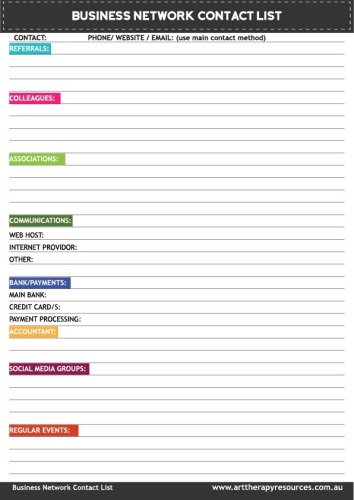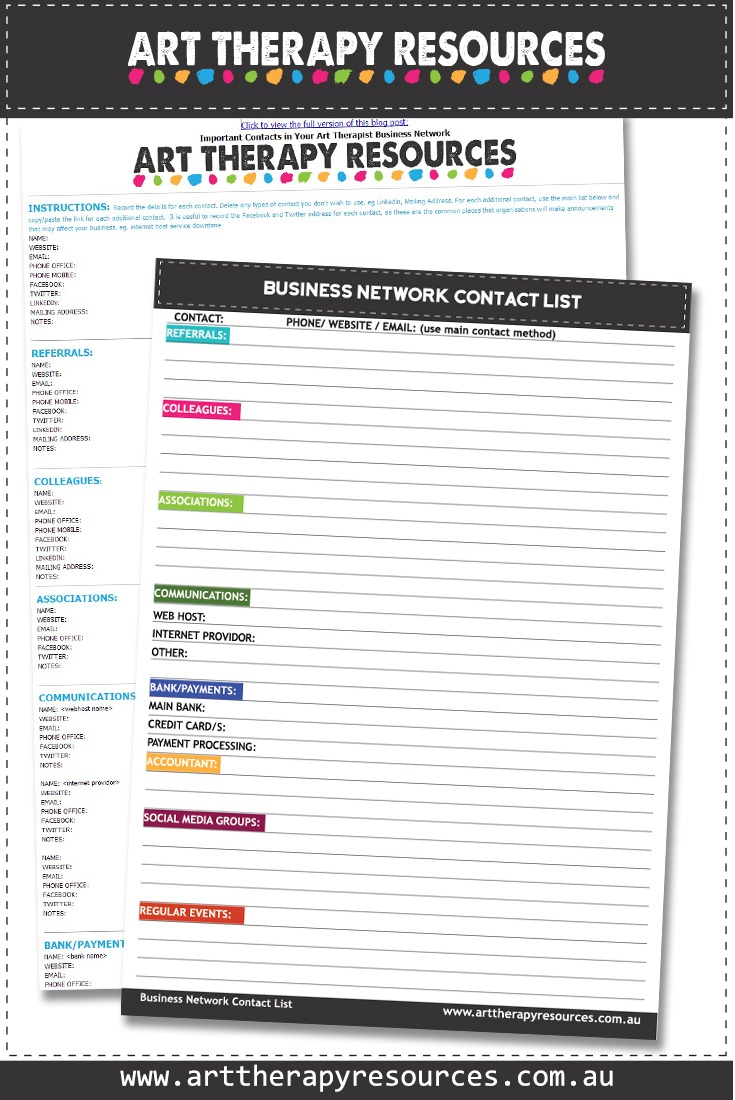THIS POST INCLUDES:
1. Types of business networks
2. Who is in your network
3. Using your Network
4. Free Download Business Contact List
TYPES OF BUSINESS NETWORKS
All businesses function within a network of other people, businesses, and organisations, with a view to providing a mutual benefit. These benefits can be based on operational functions or strategic functions.
Operational functions involve networks that help your business operate and provide services to your clients. These can include colleagues, supervisors, clients.
Strategic networks relate to the aspects of your business that relate to development and growth of your skills and business services.
Operational networks are viewed as the day to day function of your business, whereas strategic networks focus on the big picture of your business and how it can grow into the future.
WHO IS IN YOUR BUSINESS NETWORK
Understanding who is in your business network can help you develop better planning and marketing strategies. To understand who is in your business network, take a piece of paper (or document) and list all of the people you had contact with over the past month with regard to your business.
You don’t need to list all of the individual people, but instead write down the main categories. For example:
- Clients
- Referral sources
- Professional Associations
- Colleagues
- Mentors
- Social Media Groups
- Communications – phones, internet, website host
- Financial – Accountant, Banks
You should also add any categories of people that you have contact with less regularly such as once a year.
Once you’ve written out your network list, you can then categorise them by Operational and Strategic functions. Some groups may overlap. Below is a suggested breakdown of how your network might look:
OPERATIONAL
- Clients
- Referral Sources
- Professional Associations
- Colleagues
- Mentors
- Communications
- Financial
- Social Media
STRATEGIC
- Professional Associations
- Referrals
- Colleagues
- Mentors
- Communications
- Financial
- Conferences/Events
- Social Media
USING YOUR NETWORK
Once you’ve established your network list, think about the categories that you feel might need improvement in developing.
- Maybe you would like more clients
- Or you would like more referrals from other professional sources.
- Or maybe you haven’t attended any educational events lately and feel you could add more external professional development to your network.
Your business administrative networks are also important.
- Do you have an Accountant?
- Do you have a computer technician contact that can help with any data breaches or hardware problems?
- Do you know who to contact if your website or payment system goes down?
The best method to establish and use your network effectively is to develop a system. The first process is to create a database of contacts and to make sure each contact is given context of their importance in your network.
Once a month you should review your contact list and see if you need to engage with anyone on your list to strengthen your network. You should also review your list to see if you could engage in any marketing strategies with your networks.
Most of your administrative networks involving communications and financial contacts can be established once and remain in place. Other strategic networks generally require more attention.
This might mean seeking referrals, or running a workshop with a colleague. It could also mean engaging in your social media networks and offering your services as an authority in your specialty. Using your networks allows you to personalise your contact and engage in activities that are mutually beneficial.
If you are developing your strategic networks, consider the importance of having the below information available:
- Business cards
- Referral letter template
- Elevator pitch where you can easily explain your business and your services to other colleagues and referral networks
It is important to note that the focus of networking is to build relationships. This might result in immediate or long term pay-offs.
FREE BUSINESS CONTACT LIST
SIGN UP below to download the FREE business contact template to print and record your important contacts.
You can also access this Evernote document designed to record your contacts details. You can save this note to your own Evernote. You can view the Evernote document even if you do not use Evernote.
Download the Business Contacts Template.

BUILD YOUR ART THERAPY REFERENCE MATERIALS:
Pin this image to your Pinterest board.

SHARE KNOWLEDGE & PASS IT ON:
If you’ve enjoyed this post, please share it on Facebook, Twitter, Pinterest. Thank you!
